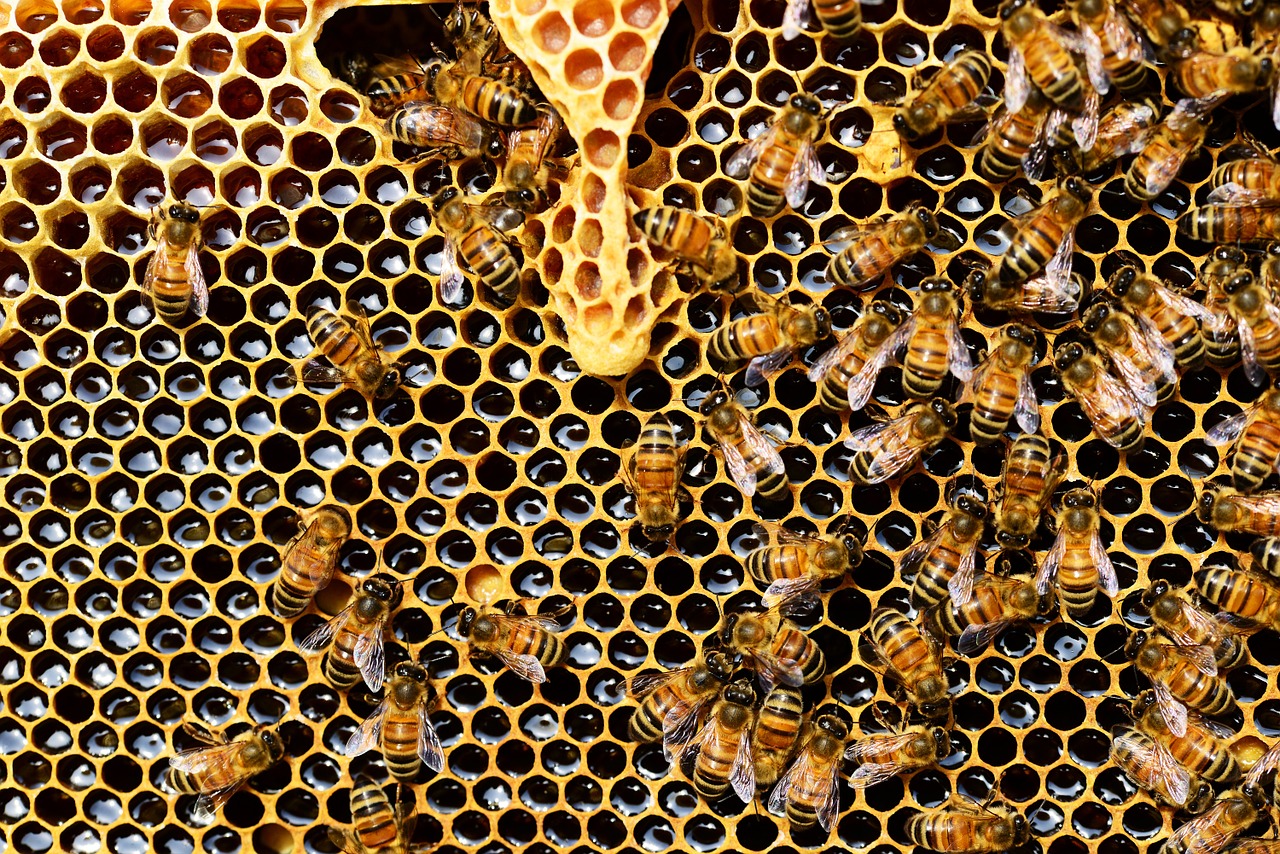By Sarah M. Shoffler, SFUSD Board of Directors
Bees are critical to pollinating plants and to growing thousands of fruits and vegetables that we eat. They are the only insect who make food that humans eat. But since the 1990s, beekeepers around the world have noticed bee colonies are disappearing. Added to that, droughts mean less access to their food supply. These things together spell trouble for these amazing five-eyed, honey-producing critters.
DID YOU KNOW?There are three types of bees: worker, drone and queen. All worker bees are females. Their wings beet 200 times per second or 12,000 beats per minute. The average worker bee produces about 1/12th of a tablespoon of honey in her lifetime. Bees communicate through pheromones and dances. Plus watch this.
But you don’t have to convince Hilary Kearney, Owner of Girl Next Door Honey, of the importance of bees. Her whole business is grounded in making bees accessible to people on every level.
“First and foremost I am educating people about bees and I find that they are often less afraid of them once they have a better understanding of what they do. I like to think of it as 'pollinating hearts and minds,” says Hilary. She does this by: teaching classes on backyard hives, managing home hives, relocating hives, teaching children about bees and giving Beehive Tours to the public. These efforts, she feels, will broaden bee knowledge among the public and lessen people’s fear of bees, which are critical to “engaging people with bees and on a larger scale their local food and ecosystem.”
queen-cup-337695_1280
Hilary cares about her bees. Under normal conditions, bees will produce excess honey, enough to supply us humans with the sweet stuff and still feed themselves. But during a drought, there are fewer flowers, which means less nectar, which the bees need in order to make honey. So they may not be able produce enough for themselves and may have to work harder and travel further just to find the nectar. To support her bees, who rely on honey as their only food, Hilary doesn’t harvest honey during a drought. So when people buy honey from her, they can be assured that the bees it was taken from have enough food and are not starving.
In addition, the drought has weakened the wild colonies in the area. They are producing smaller and weaker swarms (when a queen leaves a colony with worker bees to form a new colony). “When I do a bee rescue it takes more effort and resources to keep those bees alive and healthy” she says. Wondering what you can do to support bees?
HOW TO HELP BEES:
Avoid neonicotinoids in pesticides. These are thought to weaken bees’ immune system and make bees vulnerable to disease, parasites, extreme weather, viruses, poor nutrition, and other stressors.
Plant organic bee-friendly flowers, like California poppy, citrus, sage, sunflowers and others listed here.
Make a bee drinking fountain: fill a baking dish or pet water bowl with pebbles or marbles and water. The bees will stand on the marbles while they drink, without drowning.
To learn more about bees, honey, beekeeping and how to help bees, you can check out Girl Next Door’s partnership with Suzie's Farm and their new monthly Beehive Tours. You’ll be able to suit up and go into a beehive with Hilary. Or, come check her and our other bee-positive partners out at the Good Food Community Fair, Sunday, October 11th.






